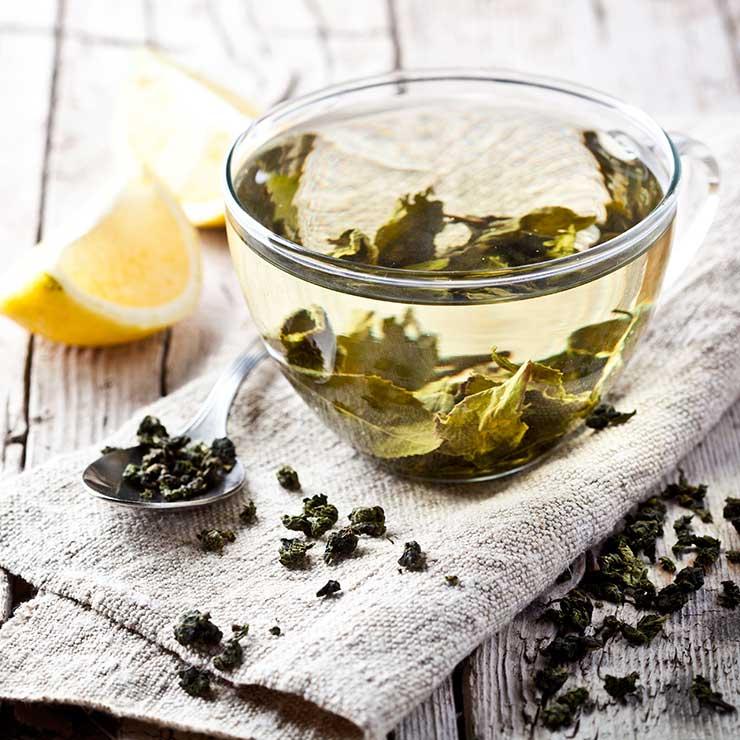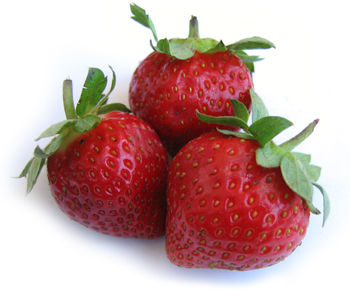In the game of weight loss, the deck is stacked against you. Food marketers have spent millions researching colors, flavors, scents, and packaging in order to find the best ways of getting you to eat more. But in the past few years, brain researchers have discovered some tricks to help suppress your hunger. You can trump the urge to overeat with these science-supported strategies. (Lose up to 25 pounds in 2 months—and look more radiant than ever—with the new Younger In 8 Weeks plan!)
Hang a mirror in your dining room.
 2/11
Hang a mirror in your dining room.
2/11
Hang a mirror in your dining room.
Watching yourself eat can be an unpleasant experience, and it will definitely get you to reconsider your choices. So, yes, hang a mirror in your dining room, and when you go out, see if the hostess can seat you in front of your reflection. Research shows that people who eat in front of a mirror enjoy junk food less and as a result, eat less of it. However, people who sat down to a healthy meal actually felt better about themselves—plus they got more enjoyment out of their veggies. The researchers figure your reflection holds you accountable for your choices and healthy choices spark positive emotions.
Cleanliness is next to skinniness.
 3/11
Cleanliness is next to skinniness.
3/11
Cleanliness is next to skinniness.
A tidy home eases stress, and a clean kitchen helps cut calories, it seems. Spending just 10 minutes in a cluttered, disorganized kitchen made volunteers more likely to reach for unhealthy snacks like cookies, according to a study in Environment and Behavior. They ate about 100 more calories—all of it junk—compared to people in a tidy kitchen (who were more likely to choose carrots to nosh on).
Pay cash for junk.
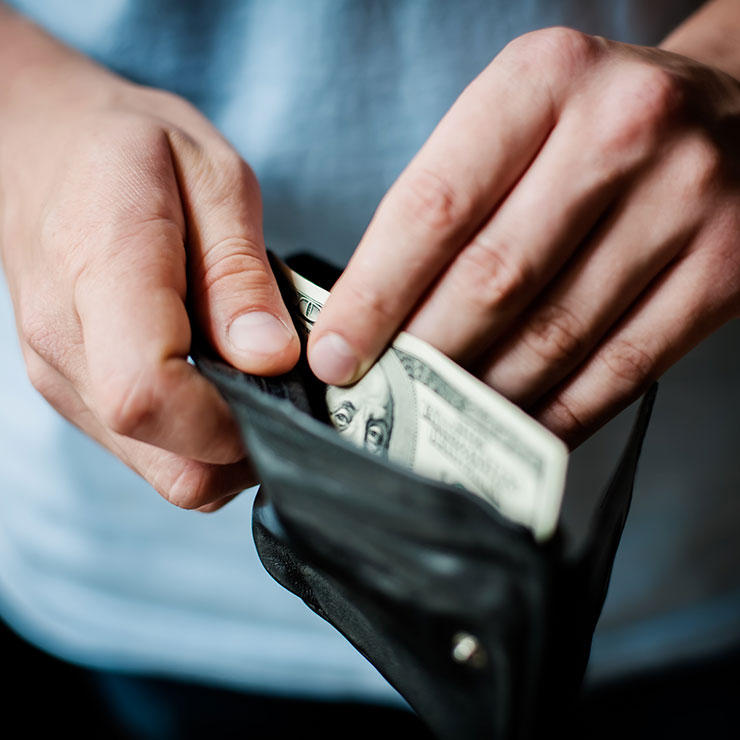 4/11
Pay cash for junk.
4/11
Pay cash for junk.
Scientists have found that having to dig out dollars to get a candy bar or a bag of chips may give you pause enough to reconsider the purchase. The pain of parting with cash stops many impulsive cake and cookie purchases, according to a study of shopping behaviors. Another trick at the grocery store is to choose the smaller cart: These researchers also noted people made more impulsive purchases when pushing around a larger cart.
Dim the lights.
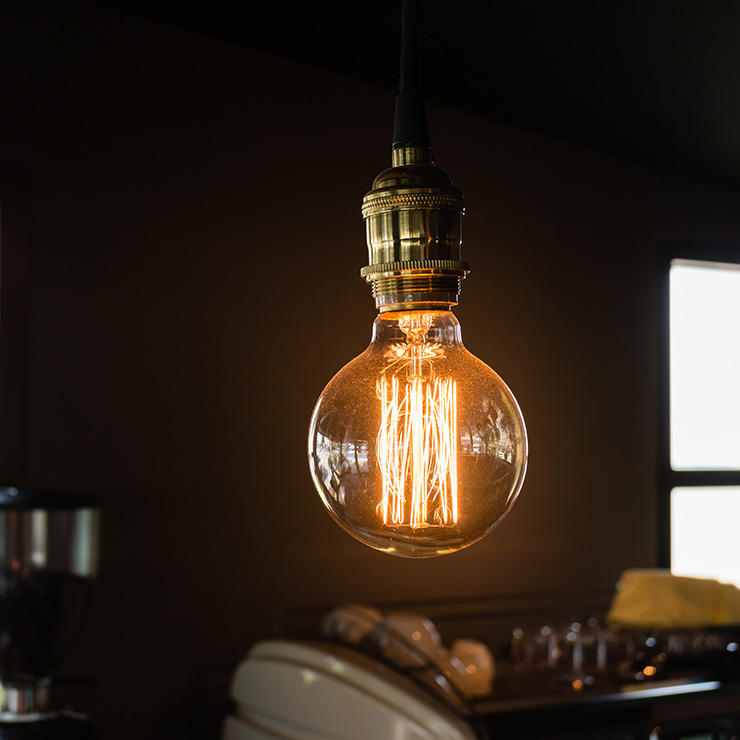 5/11
Dim the lights.
5/11
Dim the lights.
With soft lighting, stress melts away, conversation gets interesting, and mood improves. Oh yeah, and you eat less, according to research published in Psychological Reports. In the study, participants who ate in dimmer lighting enjoyed their meals more, took longer to eat, and consumed 18% fewer calories than people who sat under bright lights. Hit the dimmer to eat less while enjoying your meal more.
Use the power of peppermint.
 6/11
Use the power of peppermint.
6/11
Use the power of peppermint.
Just a whiff of peppermint helps control cravings and emotional eating, according to research published in the journal Appetite. In the study, people who sniffed peppermint every 2 hours felt less hungry, more focused, and consumed 2,800 fewer calories per week than non-sniffers. Peppermint not your cup of tea? (Ha.) A similar study in the UK found the same effect when people wore a vanilla-scented patch. They lost 5 pounds in a month and felt more in control of their diet than people who didn't wear the patch. Try some scented vanilla or peppermint candles in the dining room and/or kitchen.
Eat with men.
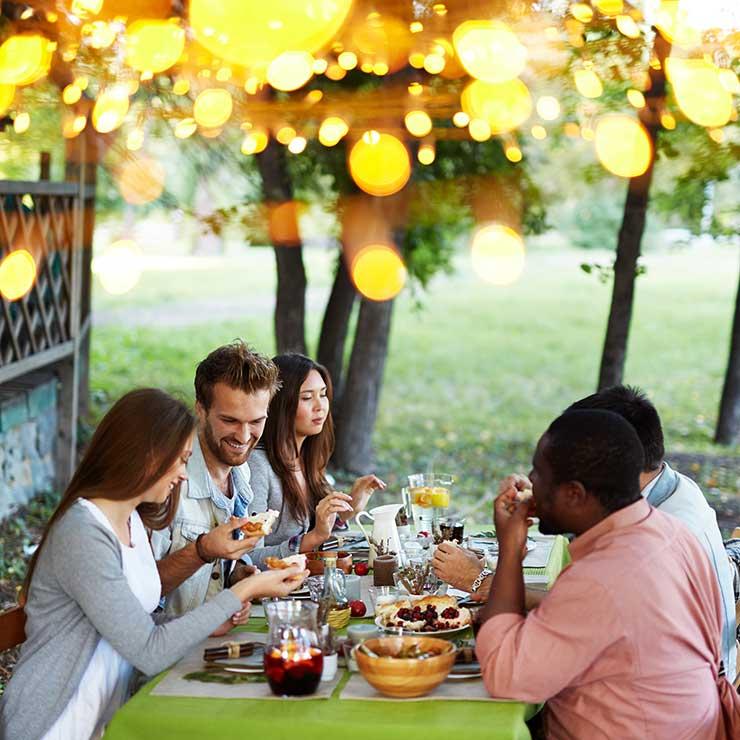 7/11
Eat with men.
7/11
Eat with men.
This one works for women, not so much for the guys. According to research in the Journal of Applied Social Psychology, women tend to order less and pick at their food more when in the company of a man. But men tended to order over 200 more calories (¿Quien es mas macho?) when dining with women than with other men. In another study recently published in Evolutionary Psychological Science, the news got worse for men. Men dining with at least one woman at an all-you-can-eat buffet ate twice as much as men who ate with other guys. There are two lessons there for men: Avoid all-you-can-eat buffets and stop trying to impress ladies by making yourself a human garbage can.
Choose your waiter carefully.
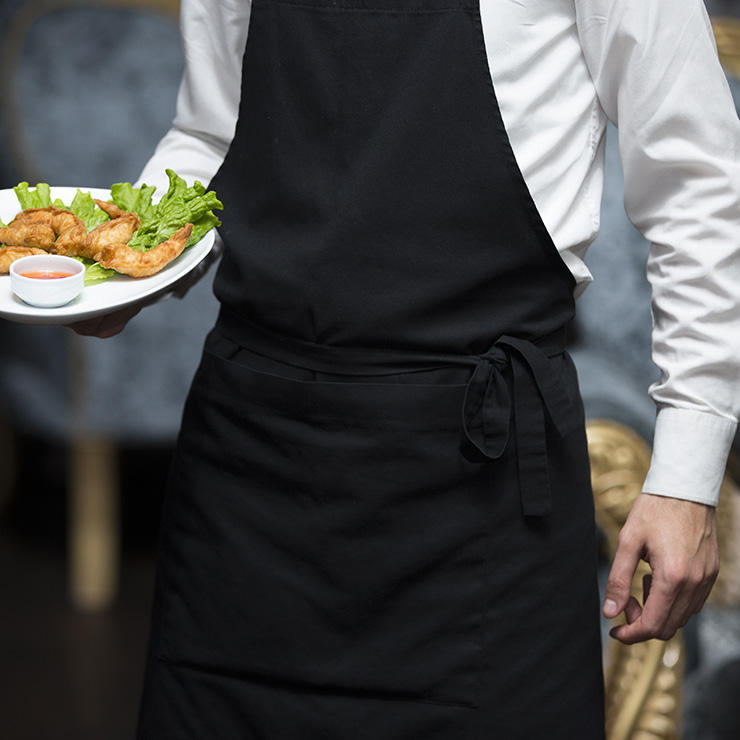 8/11
Choose your waiter carefully.
8/11
Choose your waiter carefully.
Skinny is as skinny does—or something like that: Surreptitiously request a table in the section being served by the thinnest service person. A recent study of 497 diners in 60 restaurants found that people served by waiters with a higher BMI are four times more likely to order dessert; they also drink 17% more booze. If there's no graceful way to request a waiter without being offensive, the researchers recommend deciding what to order, how much you plan to drink, and deciding to skip dessert before you arrive at the restaurant.
Don't color coordinate.
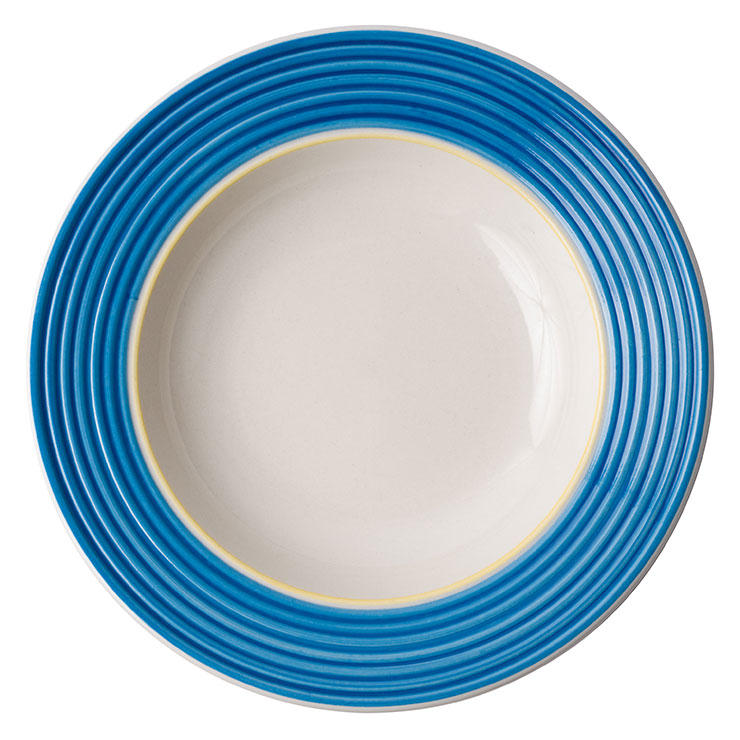 9/11
Don't color coordinate.
9/11
Don't color coordinate.
White pasta in a white cream sauce on a white plate equals an overstuffed you: A study in the Journal of Consumer Research, found that people exert better control over portion size when food contrasts with the color of the plate. One simple solution: Another study in the International Journal of Obesity found that simply eating off a plate with a blue rim led diners to perceive their servings to be larger.
Stick to talk shows and comedies.
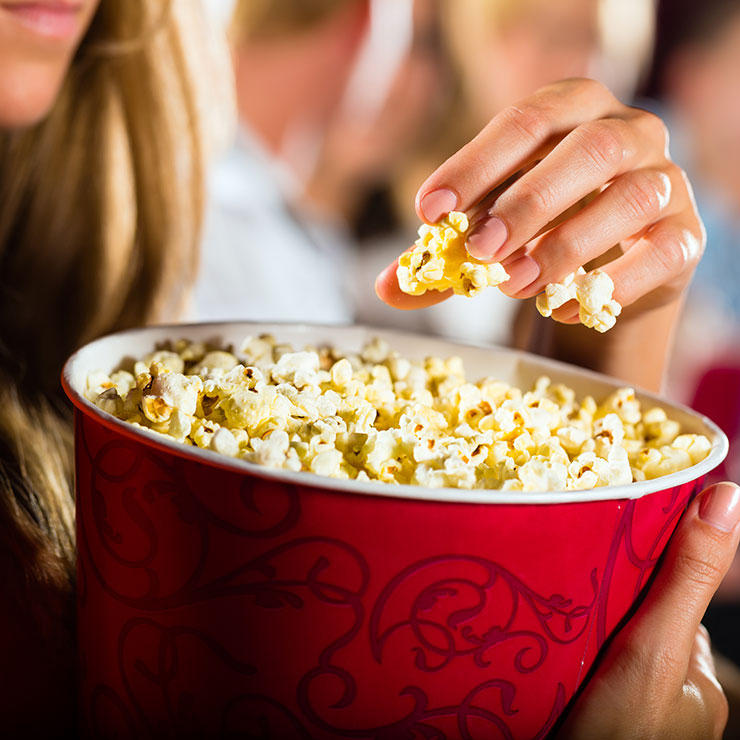 10/11
Stick to talk shows and comedies.
10/11
Stick to talk shows and comedies.
Look, eating in front of the TV is unwise, but we all do it. So save the snacks for comedies or talk shows, and put the chips away when you're watching action or tear-jerkers, suggests the findings of a study published in the Archives of Internal Medicine. People scarfed twice as much snack food while watching The Island then they did while watching the talk show Charlie Rose. At the movies, viewers of sad movies ate 28 to 55% more buttered popcorn than people who watched comedies.
Be size selective.
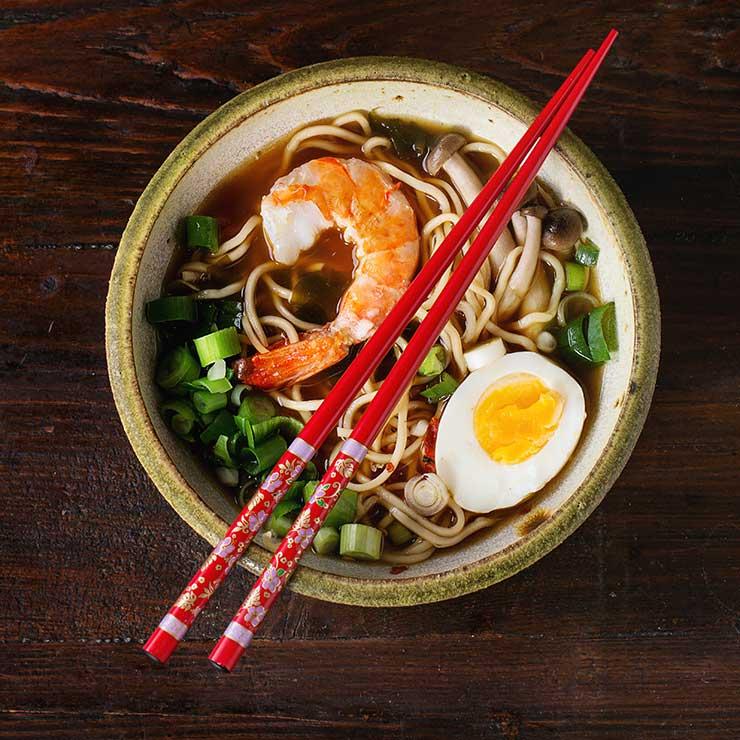 11/11
Be size selective.
11/11
Be size selective.
A long, elegant fork or spoon will slow you down and help you glean more enjoyment from your repast. (The same is true for long chopsticks versus short chopsticks.) A Taiwanese study in Psychological Reports finds that, weirdly enough, short utensils made volunteers feel the need to shovel in more food. People using longer cutlery reported enjoying their food more, and they took more time between bites and ate less.
- Prev:12 Surprisingly Effective Ways To Halt Your Hunger
- Next:4 Ways To Turn On Your Weight Loss Hormones Today
 2/11
Hang a mirror in your dining room.
2/11
Hang a mirror in your dining room.
 3/11
Cleanliness is next to skinniness.
3/11
Cleanliness is next to skinniness.
 4/11
Pay cash for junk.
4/11
Pay cash for junk.
 5/11
Dim the lights.
5/11
Dim the lights.
 6/11
Use the power of peppermint.
6/11
Use the power of peppermint.
 7/11
Eat with men.
7/11
Eat with men.
 8/11
Choose your waiter carefully.
8/11
Choose your waiter carefully.
 9/11
Don't color coordinate.
9/11
Don't color coordinate.
 10/11
Stick to talk shows and comedies.
10/11
Stick to talk shows and comedies.
 11/11
Be size selective.
11/11
Be size selective.
